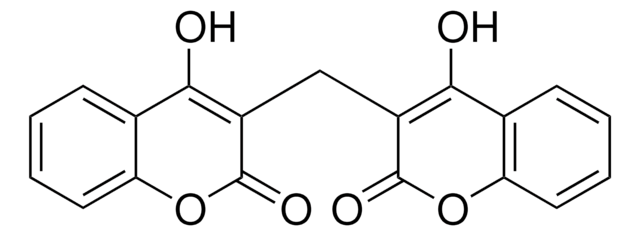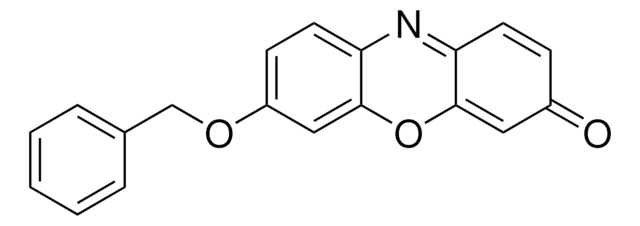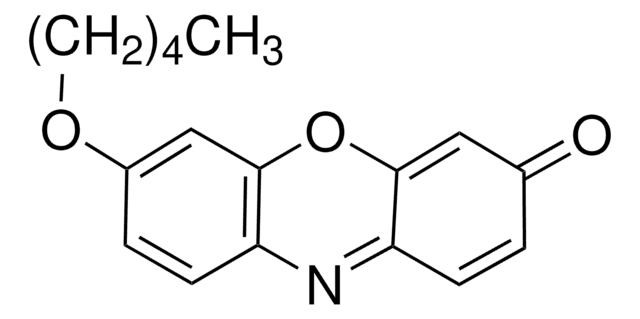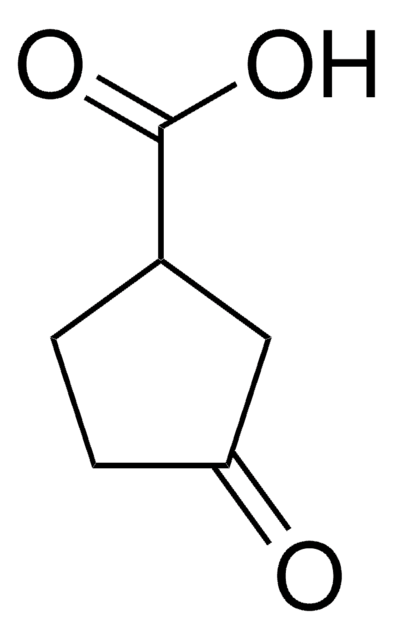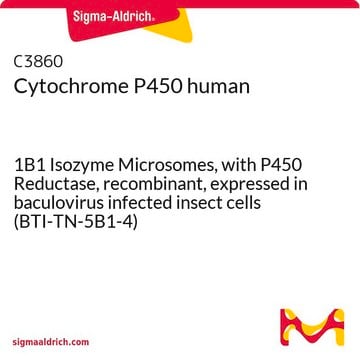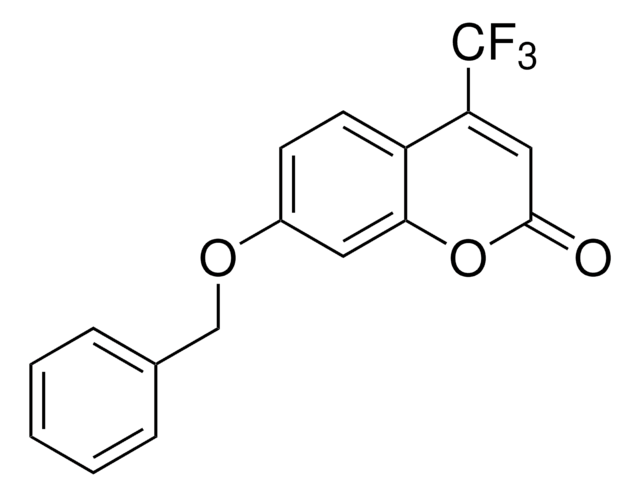E3763
Resorufin ethyl ether
≥98% (TLC), powder
Synonym(s):
7-Ethoxy-3H-phenoxazin-3-one, Ethoxyresorufin, O7-Ethylresorufin
About This Item
Recommended Products
Quality Level
Assay
≥98% (TLC)
form
powder
storage condition
(Tightly closed. Dry)
technique(s)
activity assay: suitable
color
orange to red
mp
223-225 °C (lit.)
solubility
chloroform: 9.80-10.20 mg/mL, clear, orange
suitability
suitable for fluorescence
storage temp.
−20°C
SMILES string
CCOc1ccc2N=C3C=CC(=O)C=C3Oc2c1.Fc4c(F)c(F)c(OC(=O)CNC(=O)OCC5c6ccccc6-c7ccccc57)c(F)c4F
InChI
1S/C23H14F5NO4.C14H11NO3/c24-17-18(25)20(27)22(21(28)19(17)26)33-16(30)9-29-23(31)32-10-15-13-7-3-1-5-11(13)12-6-2-4-8-14(12)15;1-2-17-10-4-6-12-14(8-10)18-13-7-9(16)3-5-11(13)15-12/h1-8,15H,9-10H2,(H,29,31);3-8H,2H2,1H3
InChI key
ZOSYTBPPLWBBKM-UHFFFAOYSA-N
Looking for similar products? Visit Product Comparison Guide
General description
Research area: Cell Signaling
Application
Substrates
substrate
Storage Class Code
11 - Combustible Solids
WGK
WGK 3
Flash Point(F)
Not applicable
Flash Point(C)
Not applicable
Personal Protective Equipment
Certificates of Analysis (COA)
Search for Certificates of Analysis (COA) by entering the products Lot/Batch Number. Lot and Batch Numbers can be found on a product’s label following the words ‘Lot’ or ‘Batch’.
Already Own This Product?
Find documentation for the products that you have recently purchased in the Document Library.
Customers Also Viewed
Articles
Phase I biotransformation reactions increase drug compound polarity, mainly occurring in hepatic circulation.
Our team of scientists has experience in all areas of research including Life Science, Material Science, Chemical Synthesis, Chromatography, Analytical and many others.
Contact Technical Service


